I was sad to be born, he tells me, because it means I will die
Ever since I got punched in the face and abused at the hospital I have been having a very hard time
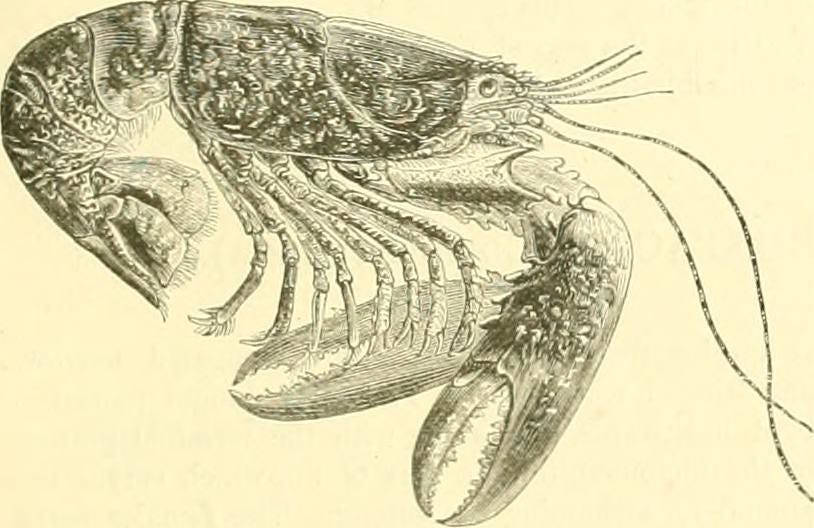
Andrew Casciano had just attempted suicide in March of 2018 and perhaps having second thoughts perhaps scaring himself by what he had just tried to do he called 911 which is what we do when we want the police to come and save us or someone we care about. Calling the police on someone who is expressing suicidal thoughts or undergoing a mental health crisis is almost always the worst thing you can do though due to you can’t shoot someone in the brain and make them feel better and you can’t beat the desperation out of a person you can only beat it into them so unless you want someone to be hurt there’s really no other reason to press the magic telephone numbers that summon the bullets and fists.
Casciano was taken to St. Joseph’s Medical Center in Paterson, New Jersey where he lives according to the Paterson Times and two police officers named Ruben McAusland and Roger Then followed along because they didn’t want him to hurt himself I guess so instead they hurt him.
In a surveillance video from the hospital Casciano can be seen throwing something down the hallway — a box of gloves the cops later said — which angered McAusland so much that he had no other recourse but to shove the suicidal man in the wheelchair and then punch him in the face because we can’t have things being thrown that would be untoward. Casciano began to fall over on account of being punched in his face and Then grabbed him by the neck and threw him to the ground to help him get to there faster.
In a second video filmed by Then on his phone in a private room in the hospital where they took the suicidal man Casciano is in a bed obviously in pain and distraught and bleeding from the head.
“You have the right guy tonight,” McAusland said and Then turned the camera toward himself smiling big like the type of smile you’d do just before you jumped down a waterslide when you were a kid and nothing could ever be more thrilling than the next thirty seconds of your life sliding down and down and down.
Casciano started talking shit which is always a bad idea because talking back to the police is illegal so McAusland put on a pair of gloves like he was about to perform surgery and delivered two resounding smacks to the face of the suicidal man in the hospital bed spattering blood on the white linens.
You can watch the assault in the post below if you like. You will not like it but you can do so in any case.

The beating broke his eye socket so badly he required surgery after. Doctors are the opposite of the police because their job is to fix people and make their lives better.
Realizing shortly thereafter the enormity of their mistake the two officers immediately turned themselves in lol just kidding they filed a false police report and attempted to conceal the evidence which they probably would have gotten away with if McAusland wasn’t already under investigation by his department and the FBI.
McAusland was recently sentenced to five years for stealing drugs from crime scenes and selling the drugs while in uniform and from his police car and all other manner of brain genius moves. Then was sentenced to six months in prison for his attempts to cover up the beating for which Casciano is now suing the city for four million dollars.
“Ever since I got punched in the face and abused at the hospital I have been having a very hard time,” Casciano wrote in a victim statement that was read at the trial. “Now I am having trouble mostly mentally. It has been a very uneasy recovery.”
“The officers who abused me have engraved a negative memory that often haunts me throughout the day,” he wrote. “The day of the assault I was at a very low moment in life dealing with problems. When this incident occurred it felt like I was being degraded to an even lower low…Police officers are supposed to ‘protect and serve’ not assault and humiliate.”
If you’re thinking the name Paterson, New Jersey sounds familiar it might be because a number of other police officers there were arrested this year after it was found they had engaged in a pattern of illegal vehicle stops in which they extorted cash from drivers.
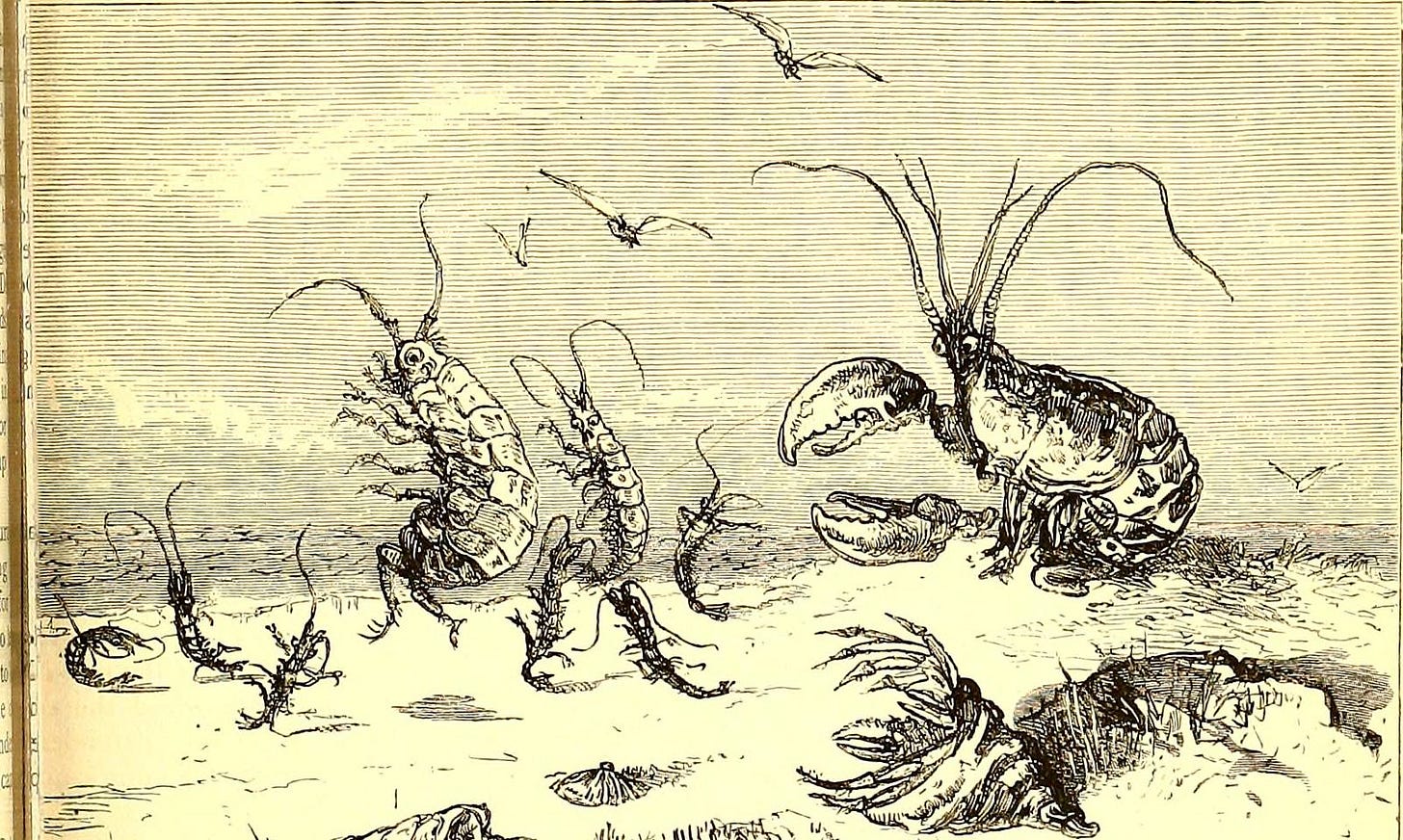
Did you watch the video? The smacks are so loud man and something about the way Casciano took both of them stoically then raised his arm up to his face to defend himself only after the beating stopped is just real hard to watch. It’s like when you’re indifferent to the concept of pain and you think fuck it nothing can hurt me and then the pain when it arrives is worse than you imagined it was going to be and all of a sudden you’re like ah shit I don’t want this anymore I change my mind I retract my previous position vis a vis suffering which is maybe what he thought going into the beginning of the night when he wanted to die and then didn’t anymore.
Here’s a poem I just saw and I would like you to read it now.
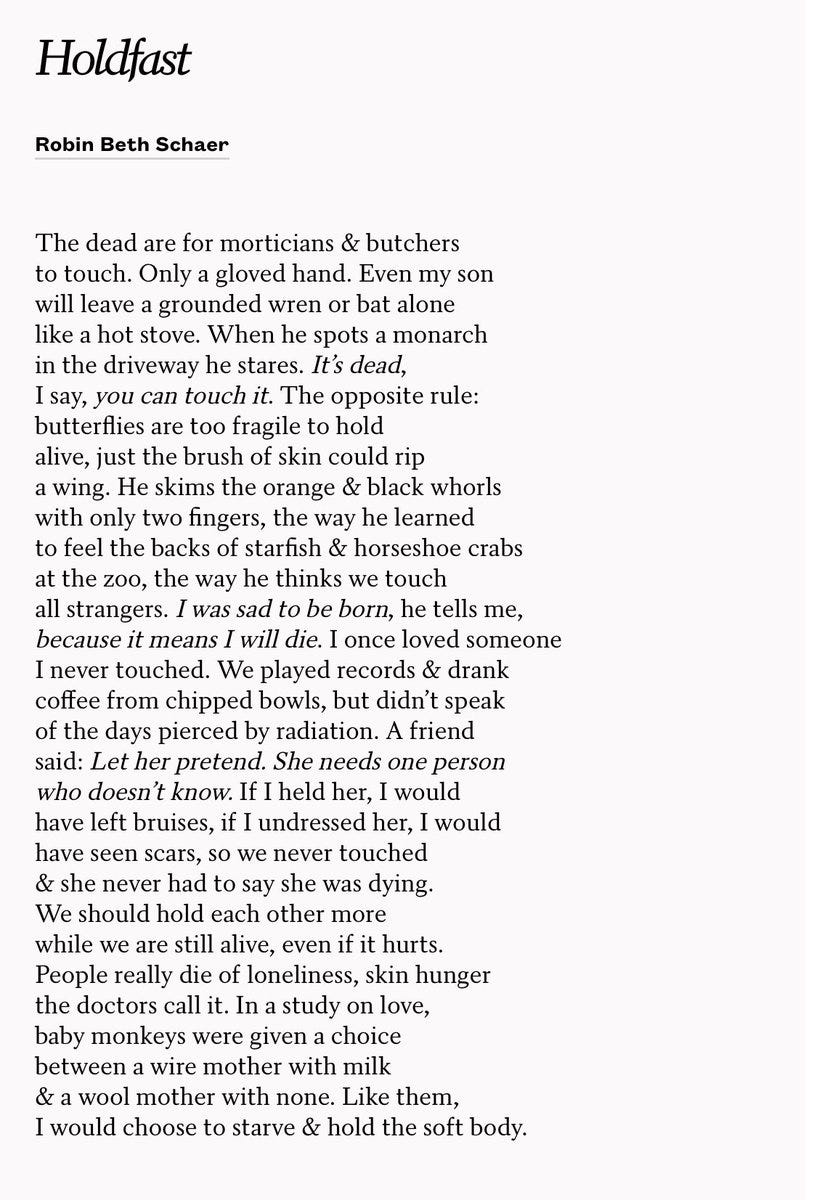
Another thing I can’t stop thinking about is the tattoo you can kind of make out on Casciano’s arm as he’s meekly trying to defend himself from his police beating. I can’t see what it says. I wonder what frame of mind he was in on the day he got it. Maybe it was an exciting day and he had hope for better things to come. Maybe he was agitated and anxious which to be honest is usually the case for me whenever I go to get a tattoo as I mentioned in the last Hell World. A while back I wrote about my father dying and how we were all standing around his hospital bed while the machine made him look like a bloated dying Darth Vader and everyone was telling stories about how he was funny and an asshole and the type of things you say when someone is dying and I couldn’t really look at anything except his tattoos.
As a group of us watched him slip away, we poked and prodded at his tattoos, still just-visible on his arms, enlarged and bloated from so many tubes, now bruised and blood-red. There was my mother's name, long since covered up by a black panther; his most recent ex-wife's name; a naked Porky Pig, dick and balls and all; a devil with its tongue sticking out, straddled by a naked woman; and other assorted tattoos one apparently picks up along the way in various motorcycle gangs and clubs.
They say tattoos tell the story of someone's life, and in staring at his, we actually began to tell it to each other, this assembled group of family and friends. It was cathartic in the way speaking of the dead can be, although macabre at the same time, as he wasn't even dead yet. I couldn't help but be taken aback by the existential horror of being vaguely conscious, unable to move or talk, while everyone you know is standing around your body crying. Ah shit, you'd probably think. I must be really fucked this time.
Here’s the next tattoo I’ll probably get that my friend Nicole designed for me. It’s a bunny tearing someone’s heart out and eating it. I wonder what it will look like when I’m in the hospital some day.
Back when I first started getting tattoos people used to say shit to people like how are those going to look when you get old but no one says that type of thing anymore now that everyone has tattoos and everyone is old. It’ll probably look like shit I used to answer not being able to imagine a time when that might actually come true. People still get red and raw when someone has a face tattoo I guess. Pretty soon we’ll run out of new places to put tattoos and then what.
Some of the face tattoos people were anxious about a while back were on the face of a boy named Gustav who made songs under the name Lil Peep and he was a thrilling voice of a generation type of musician that I am absolutely certain the vast majority of you will think sounds like dog shit if you don’t already and that is fine because it wasn’t for you and even though I’m also obviously too old to be in the target demographic it nonetheless worked very well on my particular type of brain. He died from taking too many drugs and falling asleep for one last time about a year and a half ago and I wish he hadn’t.
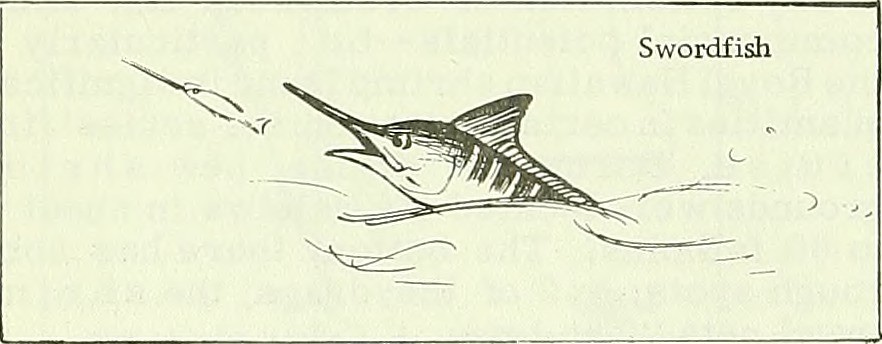
“The principle function of painting, until recently, was to depict, to make as if continually present, what soon was to be absent,” John Berger wrote in And Our Faces, My Heart, Brief as Photos, and then a few pages later he wrote “One might be tempted to say that paintings preserve a moment. Yet on reflection this is obviously untrue. For the moment of a painting, unlike a moment photographed, never existed as such. And so a painting cannot be said to preserve it.”
So I don’t know what to tell you about whether or not a painting preserves something or not here. Old Johnny B. was often on his bullshit.
I haven’t read that book in twenty years but Berger along with Donald Barthelme whose story See the Moon? I looked everywhere for just now and cannot find probably have as much to do with whatever it is that is going on over here with my whole thing than anyone else. I haven’t read Barthelme in many years either but like my father who I also did not spend any time with for many years they both poured something into me that wouldn’t ever come out even if I tried to get it off. It’s there in my body like… something I can’t think of the right metaphor.
A tattoo is a painting on a canvas that is specifically designed to expire is the point. Like other paintings when we get them done what we think we are doing is making continually present a moment that is soon to be absent like say when you were first in love with someone but like in any painting it never existed as such. It never happened.
I have no idea what’s going on with this synopses of See The Moon? in the New Yorker archives that is meant to give us a taste of what the story is about I guess? Whatever it is whether it’s meant to be straight or it’s some garbled AI rendering of the story or if it’s someone trying to be cute who wrote it it almost works as its own weird thing in capturing the spirit of it.
The writer is on his screened porch talking about his life. He speaks of his lunar hostility studies--See the moon? It hates us. He suffers from an illness of the mind-light-mindedness. Souvenirs of his life are pinned to one wall--a book of instructions for an Ant Farm he had with his first wife, Sylvia; a traffic ticket; a red hat from Cardinal Y, who was a part of his study of cardinals (to know them by classification & enumeration), & to whom he gave chemical & psychological tests. He hopes one day these momentos will cohere into a meaningful whole. The writer wanted to be a painter, but, after being in the Korean War, he wound up writing poppycock for the president of the university from which he graduated as a very promising young man. There was no particular point at which he stopped being promising. Fragments are the only forms he trusts. He talks about some Russian who strangled a swan. His brother Paul wanted to be an Untouchable. His father has a flag-making business Gregory, his son by his first wife, is at M.I.T.; at 17, he's always phoning to ask questions about his past; his father hopes the divorce didn't ruin him. The writer's present wife, Ann, is pregnant. The expected baby is called Gog. The writer, his father, tries to tell him, as a sort of Distant Early Warning System, what this world is. He hopes Gog will be happy here.
Or maybe that’s verbatim from the story and I just don’t remember it? I don’t think so but like I said it’s been a while since I read it or maybe I never even did.
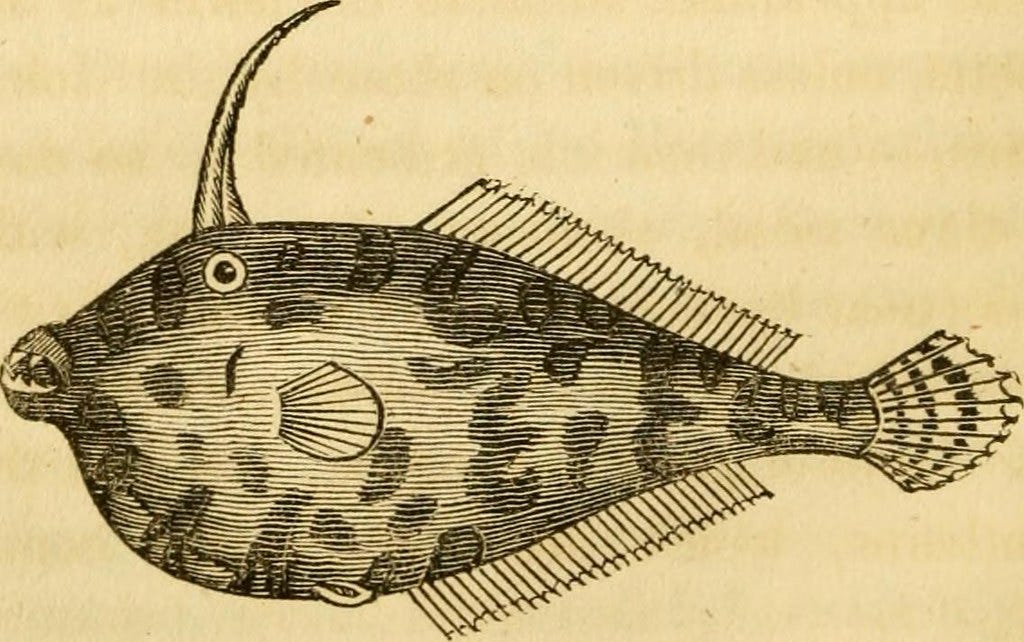
I was just looking out a window I don’t typically look out of and I had a memory of looking out of it about six years ago Monday which is the anniversary of the Boston Marathon bombing. They were shooting and shooting all over the place down the way and I don’t know what it was was exactly I was looking for out the window at that time it’s not like you can see a bullet go by.
I wrote a lot of things about all of that and the aftermath including this one about how police here used the bombing as an excuse to spy on us at music festivals but one story of mine I’ve always sort of liked was from 2015 around the time of Dzhokhar Tsarnaev being found guilty and so I think I’ll drop it in here. I do not know how much a lobster roll currently costs at Fenway Park but it cannot be less. Things don’t cost less after time they cost more.
Sorry about all the commas.
Consider the Lobster Roll
The Commonwealth of Massachusetts rarely runs a deficit of mythology. That's particularly true when it comes to our devotion to sports; during normal operating hours, the idea of Boston itself is 15 pounds of symbolism stuffed into a ten-pound city. But this month in particular has brought with it a surfeit of rhapsodizing and tenuous thread-connecting that would make the purplest of hacks go red in the cheeks.
Earlier this month Dzhokhar Tsarnaev was found guilty on all 30 charges against him for his role in the Boston Marathon bombing, two years ago this week. The conversation around the case has now shifted from the question of his guilt to whether or not the state should, in turn, end his life in our name. On the two-year anniversary of the bombing, the second most high profile trial in the region—which is saying a lot when it involves a prolifically murderous professional athlete—came to a conclusion when former New England Patriots star Aaron Hernandez was found guilty of the 2013 murder of a friend, merely one of three slayings he's suspected of. Hernandez will now spend the rest of his life in prison, a mere few miles from the stadium at which we once lavished him with adulation for his talents. Meanwhile a fierce debate rages on between city leaders and the community over Boston's bid for the 2024 Olympic games, the literal blueprint for the marathon, and the pool from which we all draw the water of our collective sports mania. All of this as the 2015 Marathon rears its head today, on Patriots' Day, a statewide holiday in Massachusetts that commemorates the first battles of the Revolutionary War in 1775 in the nearby towns of Lexington and Concord.
A man in search of a metaphor could give himself a hernia.
Contrary to popular consensus and street vendor t-shirt marketing slogans, there was nothing inherent in the region's steadfast reaction to any of this that should be read as uniquely Bostonian. Grandstanders and politicians have talked at length since then of the city's wounds healing, something that's a lot easier to say when you weren't among the hundreds of actually wounded of course. And in the early days, much of that healing process, or at least the outward expression of it, took place, perhaps fittingly, at Fenway Park.
Twenty-four hours after Tsarnaev was apprehended, just down the street from where I live in Watertown, after a prolonged shoot-out with law enforcement officers had transpired the night before, the Red Sox played their first game since the marathon. David Ortiz, as potent a totem of Bostonicity as you can find (short of Bobby Orr sitting in with Aerosmith), addressed the Fenway crowd in one of the period's defining moments.
"This is our fucking city!" he exhorted us, to rapturous applause, and more than a few FCC complaints. "And nobody's going to dictate our freedom. Stay strong."
Re-watching the video now, even the wettest of provincialism-jaded blankets can't help but relive the emotional pull of the moment.
I thought about that speech in the stands at Fenway on Saturday as I watched Ortiz and company lose to the Baltimore Orioles. I didn't particularly care about the game, instead I was there trying to find something to believe in. Fenway, often called the cathedral of Boston, was where so many found catharsis after the attack. But like any good Massachusetts lapsed Catholic who hasn't been to confession in years, I felt like I was forcing it.
Much like church, I also haven't been to a game in a long time. I scarcely remembered how to go through the motions, when to stand, when to sit, when to be quiet, and when to make the appropriate noises. The last time I went to any sort of game was to see the Patriots at Gillette Stadium years ago. The post 9/11 jingoism extravaganza that's come to characterize all major sporting events was still in full blush, and my friend and I were loudly berated by those around us for failing to sufficiently genuflect before the militarized show of force at halftime. The pageant of believing in something together is a powerful drug.
In the ensuing months after 9/11, president George Bush infamously encouraged Americans to get back to the business of being American, by which he of course meant spending money. Go shopping, he exhorted us. Something similar happened after the Marathon bombing. We were told by city and state leaders that in order to heal we needed to resume our lives as normal. The return to business at Fenway on the day of Ortiz's speech was a galvanizing moment in that regard. People were afraid to ride the subway those first couple of months, to go to large gatherings like sporting events. But, it seemed gradually, that each act of consumption served as a sort a minor political victory. Our resolve would not be bent by the cowardly actions of two shit-heel terrorists. We'd once again circulate, without fear, within our fucking city, and, more importantly, circulate our hard-earned currency. Congratulations to us all for overcoming the odds.
Some of us are more capable of engaging in the capitalistic healing than others. Unlike sentimental jargon, a trip to Fenway Park doesn't come cheap. The recent Fan Cost Index compiled by Team Marketing Report found the Red Sox are once again the most expensive ticket in baseball. The team topped the list in both the price of an actual ticket, at $52.34, beer, at $7.75, parking, at $35, and hat price, at $25. For the average group of four to attend a game, it costs about $350.86, they conclude. Little wonder that after a tragedy we're encouraged to get back into the park—there's a lot of hot dog money at stake.
Having been denied press credentials for the game as a VICE reporter, I lucked out with a friend who happened to have an extra $30 ticket for standing room only in the grandstands. All things considered, it wasn't such a bad way to spend an afternoon, although without a dedicated vantage from which to watch the game, it's easy to lose track of the action, to forget where you even are. As my attention drifted, each cheer from the crowd snapped me back into the present like a cold slap in the face. It's an effect only exacerbated by watching the action on one of the many TV screens strewn throughout, playing on a momentary time delay—visual and auditory clues fall out of sync.
Otherwise I might as well have been at a crowded mall with a particularly robust food court. This isn't unique to Fenway, of course, but there's a curious disconnect here, given its century-plus history. It's an anachronism inside of a simulacrum, a document of a past that probably existed, but certainly not in any way resembling this onslaught of noise and commerce. Once inside the park, and along the enclosed open air mall of the adjacent Yawkey Way, Sox fans can avail themselves of all manner of concessions. A pepperoni or cheese pizza for $22, perhaps, (pepperonis come free). For the health conscious, a gluten-friendly pizza is only $8. Elsewhere, pigs in a blanket are available for $8, fried dough for $5.50, mac & cheese bites for $5.50, while something called "Oreo Churros" sell for a vaguely reasonable $5. For beer lovers, a can of Corona or Harpoon will set you back $9.25, while a cup of clam chowder is a mere $8.
I roamed the underbelly of the park, looking for a concession line that wasn't 30 people deep, for what seemed like an hour. You could miss an entire inning of action, say the Orioles scoring two runs to put up what would prove to be an insurmountable lead for the Sox's cold bats, while trying to order a beer. On the plus side, what you lose out on in witnessing actual athletic competition you more than make up for in the spectacle of dozens of men in baseball jerseys hunching over trashcans wiping chicken finger grease out of their goatees with cheap napkins.
Somewhere around the fifth inning, my second lap of the Escherian complex complete, I happened upon a lesser-populated line for a seafood stand. This being New England, I thought, what better way to force-feed myself into the hometown spirit. And there, in all of its resplendent, horrific, hulking majesty I found the leviathan I'd been chasing this entire time: a $29 lobster roll. Speaking of white whales, Melville's line "There is no folly of the beast of the earth which is not infinitely outdone by the madness of men," comes to mind.
Let me dash my hull against this craggy shore, I thought.
At Island Creek Oyster Bar, a highly lauded seafood restaurant just around the corner from Fenway, a lobster roll will cost you $29 as well. But that comes with all of the attendant service and atmosphere a high-end restaurant like that provides. Here, at Fenway, the mayo-doused claw and tail meat comes with a few french fries, and a condiment table to hover over while eating it. It's 4.5 ounces of meat, but a thousand pounds of symbolism.
They sell about 15-20 of them per game, the cashier told me. "It's really good stuff," she said, excited that I was trying it. The lobster comes from Legal Seafoods, the unavoidable New England chain. "You're gonna get the Fenway up-charge burn, but if you're gonna spend $5 for a hotdog you might as well eat right," she said. Inside the park numerous other stands sell lobster rolls for $13, but unlike this monstrosity, those are frozen, the proud cook explained. "It's not old stuff, it's worth it."
They weren't the only ones excited. "So that's the infamous $29 lobster roll?" a security guard type who watched me order it said. "For that price it better be good. If it's not, say it is anyway."
About a half dozen people stopped to gawk at the lobster roll before I even began eating it. You might've thought Dustin Pedroia was walking through the crowd the way it caught people's attention.
"How much they grab you for that," a fan walking by stopped to ask. "Oh my fucking God it better be good," he said when I answered him. Behind me a group of what I presumed were children, but were actually 30-something grown men, were squealing with delight playing a ball toss game.
I took a few bites, and, true to its reputation, it was pretty good. It was fine, that is. A nicely toasted bun, and solid chunks of fresh-seeming sea arachnid. I carried it back through the winding staircases and ramps to where my friends remained up in the grandstand, navigating through boozy fans, paranoid I would drop it like I had been asked to hold onto a friend's baby.
"They got the whole claw in there, but I still feel like it's really mayonnaise-forward," a Baltimore fan said.
"There are baseball stadiums that serve the upper-echelon of food. Lobster rolls are what you expect in Boston, but $29 is pretty high."
"There's a lot of lobster in it," another friend said. I was passing out bites to anyone who wanted. "I was expecting it to be sweet, but it tasted like relish."
"This was my first lobster roll," my friend Mike Fournier, author of the 33 1/3 series book on the Minutemen, said. "I wouldn't eat it again based on that."
I could overhear the bros gathered behind us talking about lobster rolls, this had turned into a real conversation piece. Just then Pablo Sandoval hit a double, sending Ortiz in for the Sox' first run of the game. This was a goddamn rally lobster, I thought. I finally did it, I made the right purchase that would bring the city together. My spending power, specifically, had galvanized the team.
That wasn't meant to be, of course, as the Sox would go on to lose the game. But the important thing was that I'd come out of my self-imposed cultural exile, and gotten back into the spirit of my city. The lobster roll may have been over-priced, cold, and mayonnaise-flavored, but isn't that a pretty good description of Boston itself?
When I got back to Watertown later that night, my street was blocked off by a dozen plus police and fire trucks. It was two years ago that night that Tsarnaev had exchanged fire throughout the neighborhood, and this was certainly the most emergency response vehicles the town has seen since then. A three-alarm fire, it turns out, had completely devastated the corner store I walk to for groceries. It burned fast and strong for about two hours before they could knock it down. Fortunately, no one was hurt.
I thought about how quiet it was on the street here the day they were looking for the bomber. Teams of machine gun-toting military types walked door to door asking us if we'd seen anything suspicious, armored cars passing by in the distance. Tonight was different, however. Everyone had come out of their homes to see what was going on, to stand together and pay witness to what had happened as a community. I talked to people I've lived next to for years and never shared a word with. We watched the fire smolder for a while, then we all went back inside. From my porch I could smell the smoke for the rest of the night, the lobster roll digesting in my belly.







the fact that four months of hell world costs less than one mayo-stuft lobsterhand is perhaps earth's grandest bargain
This is one of the first HW posts I read, and it's still my favorite. The way you talked about Casciano is heartbreaking. The idea that somebody can be low enough to be considering suicide but still fighting hard enough to try and get help is painful enough, but the line "ah shit I don’t want this anymore I change my mind I retract my previous position vis a vis suffering which is maybe what he thought going into the beginning of the night when he wanted to die and then didn’t anymore" is just searing. I have this theory that the best endeavor for any creative project is to tell the truth about something that hasn't been articulated before, and that's hard to do because there's been so much creativity over the past few thousand years, but I think that line pulled it off.